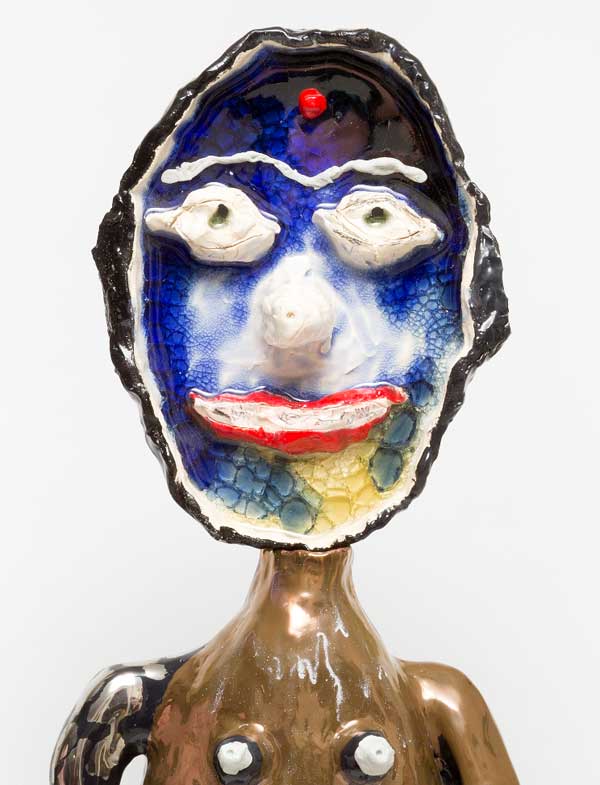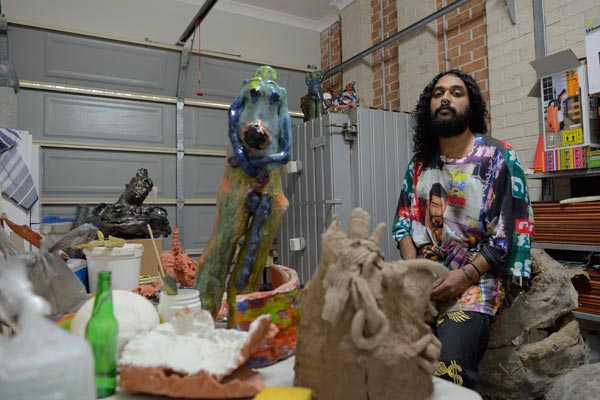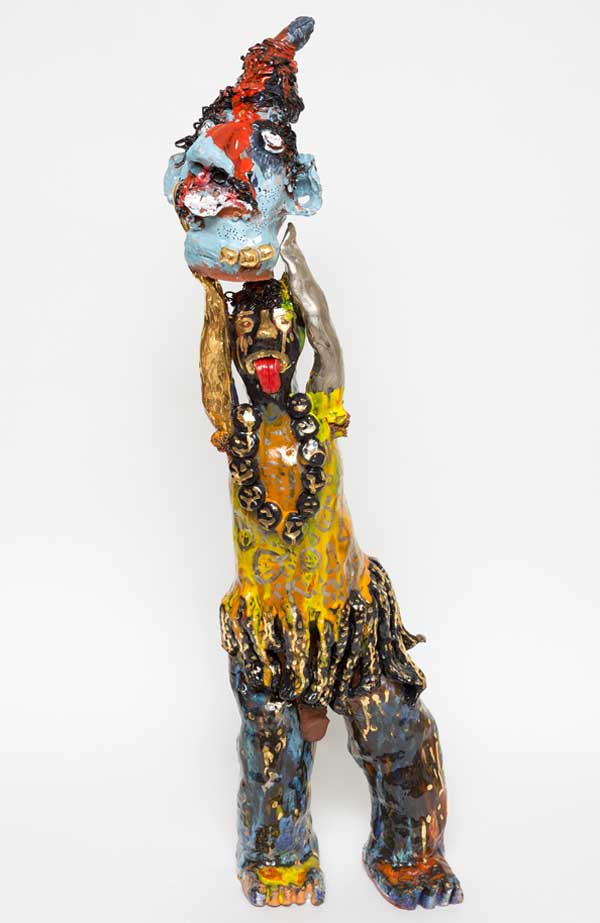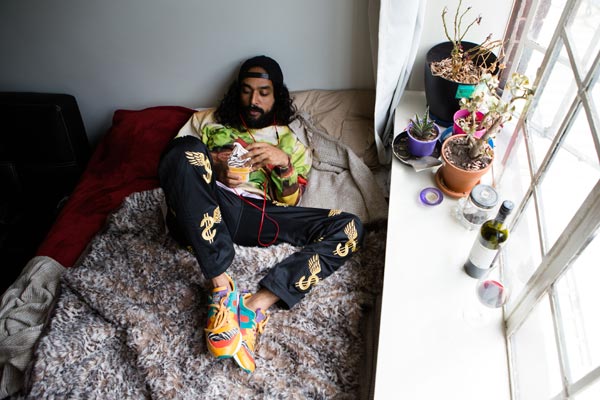Do you believe in magic? Are artists the last magicians? Can art return us to wonder?
'Magic Object' at the 2016 Adelaide Biennial takes its cue from the Wunderkammer to present work by Australian contemporary artists that bedevils classification – art that arouses our curiosity to speak to contemporary concerns. The Wunderkammer, meaning ‘a room of wonders’, describes the private museums of the past that contained marvelous objects crafted by hand or by nature, which often appeared to be one thing but were in fact another.
Inviting us into his own 'cabinet of curiosity' through painting, sculpture and installation, Sydney-based artist Ramesh Mario Nithiyendran peels back the skin on why artists are the last magicians:
'Man With A Mask' (2015) Ramesh Mario Nithiyendran © Simon Hewson
Artists can make something out of nothing
Artists make the intangible, tangible. We physically realise our ideas, often transforming materials to make objects that are more than a mere sum of their parts.
Artists can create unprecedented change
Artists and their objects can be threatening as they alter the cultural landscape, continuing to be vehicles driving social change and progress. It’s no surprise that fascist societies censor their artists and other creative people.
© Bryan Sun
Artists perform
Artists have and construct public personas.
Artists engage with the world in unexpected ways
Whether making art from our bodily secretions or engaging in painful endurance performances, artists can provide windows, allowing people to reflect on social norms and engage with other parts of the brain.
'Kali' (2015) Ramesh Mario Nithiyendran © Simon Hewson
Artists fool people
Like magicians, artists also use trickery. We can make complex work look effortless and unlabored and use various methods to challenge audiences’ expectations.
'Magic Object' exhibits the Art Gallery of South Australia 27 February – 16 May among other venues around Adelaide.


